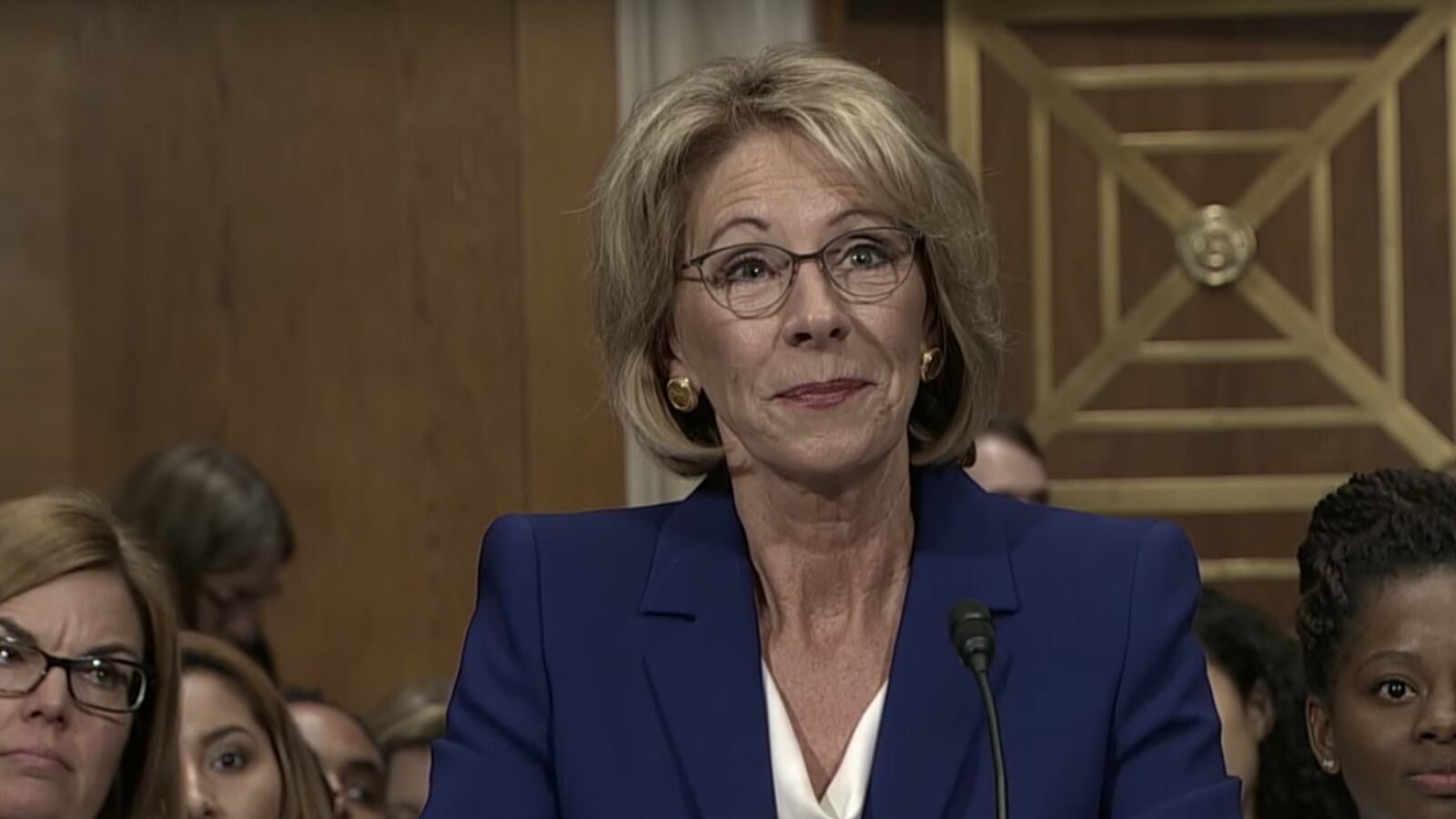School choice can produce school diversity, U.S. Education Secretary Betsy DeVos said Wednesday — citing an Indianapolis private school as evidence.
At a Brookings Institution event about choice in Washington, D.C., leading school integration advocate Richard Kahlenberg, asked DeVos for her take on initiatives that aim to increase racial and socioeconomic diversity.
“I’m wondering if you support or oppose policies that would structure choice in a way to promote socioeconomic and racial diversity,” he asked. “For example, I’ve worked with the Charlotte public schools recently. And they have a policy where, with their magnet schools, they want to try to get a nice healthy mix of students from different backgrounds.”
DeVos responded positively, though without specifics — and pivoted quickly to a place and topic closer to her experience: private schools in Indiana.
“I clearly think that having diversity, racial and socioeconomic measure of diversity, is a real benefit in schools,” she said. “I think about a school I visited in Indianapolis, The Oaks school. The mission is to really have a wide range of diversity school economically, racially. And it’s a successful school model.”
DeVos was referring to The Oaks Academy, a three-campus private school that is more diverse than most public schools in the surrounding district. Half of its students use vouchers from the state to pay their tuition, in an arrangement that DeVos lobbied to expand across the country before becoming education secretary.
Chalkbeat visited The Oaks last year and found unusual diversity in a city where schools remain quite segregated — and a motivation that could never fuel public school choice programs.
Not every school can precisely emulate The Oaks, since its leaders, and many parents, believe the school is defined by its Christian values. But its remarkable capacity to attract diverse families and create a community where students feel at ease and form friendships across often intractable social divides offers insight for schools across a still-divided city. The school’s three campuses are set in low-income, heavily black, urban neighborhoods. But the aim of the school has always been to serve not only the children of those neighborhoods but also families that had migrated to the suburbs, said Andrew Hart, CEO of The Oaks schools. “The origin of the idea of The Oaks was — ‘Let’s start a school that provides an education of such quality that families will pull their kids up from the finest, most elite private or suburban schools,’” said Hart, who started volunteering at the school in its early years. “But also let’s actively serve and reach out to neighborhood children.”
DeVos also said she thought studies have shown that choice increases school diversity. There isn’t much evidence for that, and some research to suggest that choice can magnify segregation.
What research, including Kahlenberg’s, is clear about is that poor children perform significantly better when they attend schools that are largely middle class — schools with advantages such as well-prepared peers, engaged parents and high expectations from teachers.

